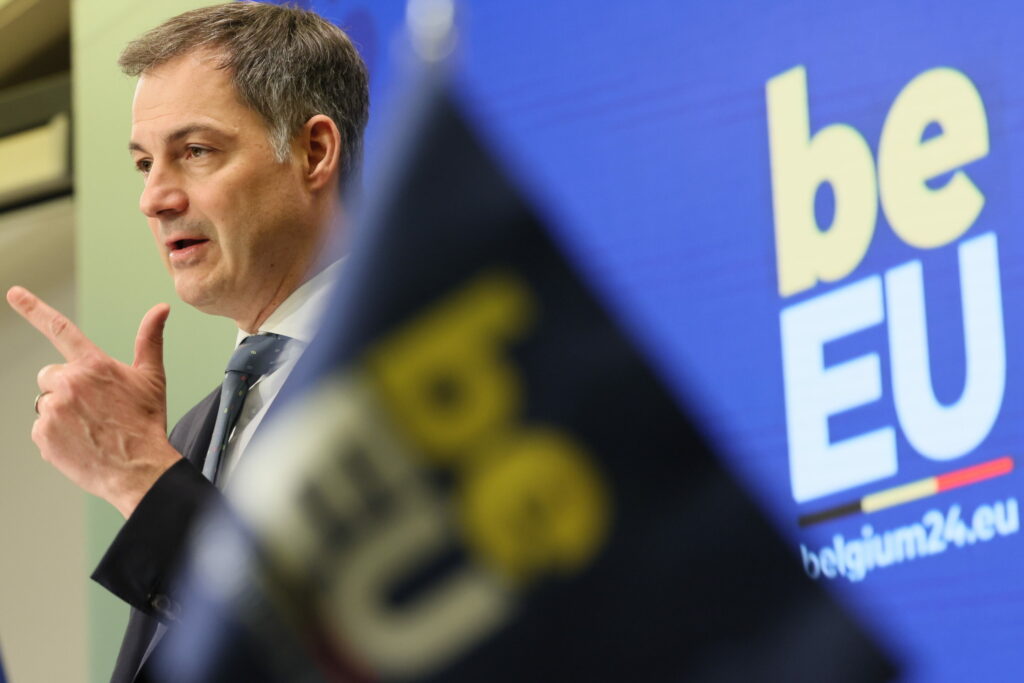Belgian Prime Minister Alexander De Croo has confirmed the Belgian judicial authorities are taking action against the recently exposed Russian propaganda network inside the European Parliament.
"We cannot allow this menace in our midst," De Croo stated as he detailed how Moscow had approached and paid several Members of the European Parliament (MEPs) to promote a Russian agenda, just a few months shy of national and European elections in June.
Speaking at the mid-term press conference of the Belgian Presidency of the Council of the European Union, the Prime Minister confirmed that the Belgian authorities are now looking into the case of Russian interference, which was exposed this month by a joint Czech and Polish intelligence investigation.
The report exposed a Moscow-backed media outlet in Czechia that was raided and broken up for paying MEPs to promote Russian foreign policy interests in the European Parliament.
While Czech media Denik N has previously claimed that Belgian, Dutch, French, German, Hungarian and Polish politicians had all received Russian money, De Croo stated that he could not communicate any details about who or how many MEPs are under investigation, as the information was classified.
"According to our intelligence services, Moscow's objectives are clear," De Croo stated. "Help elect more pro-Russian candidates to the European Parliament, and reinforce the pro-Russian narrative in that institution."
De Croo also stated that the cash payments did not occur in Belgium, but the interference did – meaning it is subject to prosecution in Belgium. The Federal Prosecutor has now initiated an investigation based on a declassified report from the Belgian intelligence services, seen by De Croo.
"As Belgium is the seat of the EU institutions, we have a responsibility to uphold every citizen’s right to a free and safe vote," he said. “But we need to act on an EU level. We need more tools to fight Russian propaganda and disinformation."
The mandates of the European Public Prosecutor’s Office and the European Anti-Fraud Office (OLAF) will be examined to see if they allow for a prosecution of this Russian threat. "If that is not the case, we should broaden these mandates," De Croo said.
The topic will be discussed at the next European Council to build a common position. Speaking alongside him, Belgian Foreign Minister Hadja Lahbib also confirmed that Belgium had expelled a number of diplomats recently who were suspected of spying, as well as diplomats accredited with the EU.
Inside the Parliament
A spokesperson for the European Parliament President Roberta Metsola told The Brussels Times last week that the Parliament is "looking into" the matter.
On several occasions and as recently as in the last European Council, the President [Metsola] voiced her warnings to Member States as to malign actors trying to influence the decision-making process in the European Union in the run up to June elections," the spokesperson said.
"The threat of deliberate misinformation, propaganda and disinformation campaigns is very real," they continued. "All institutions and Member States will keep working together to counter the threat."
Last week, Latvian MEP Tatjana Ždanok was fined €1,750 by the European Parliament after she was accused in various media of peddling Russian influence and working as a spy.

